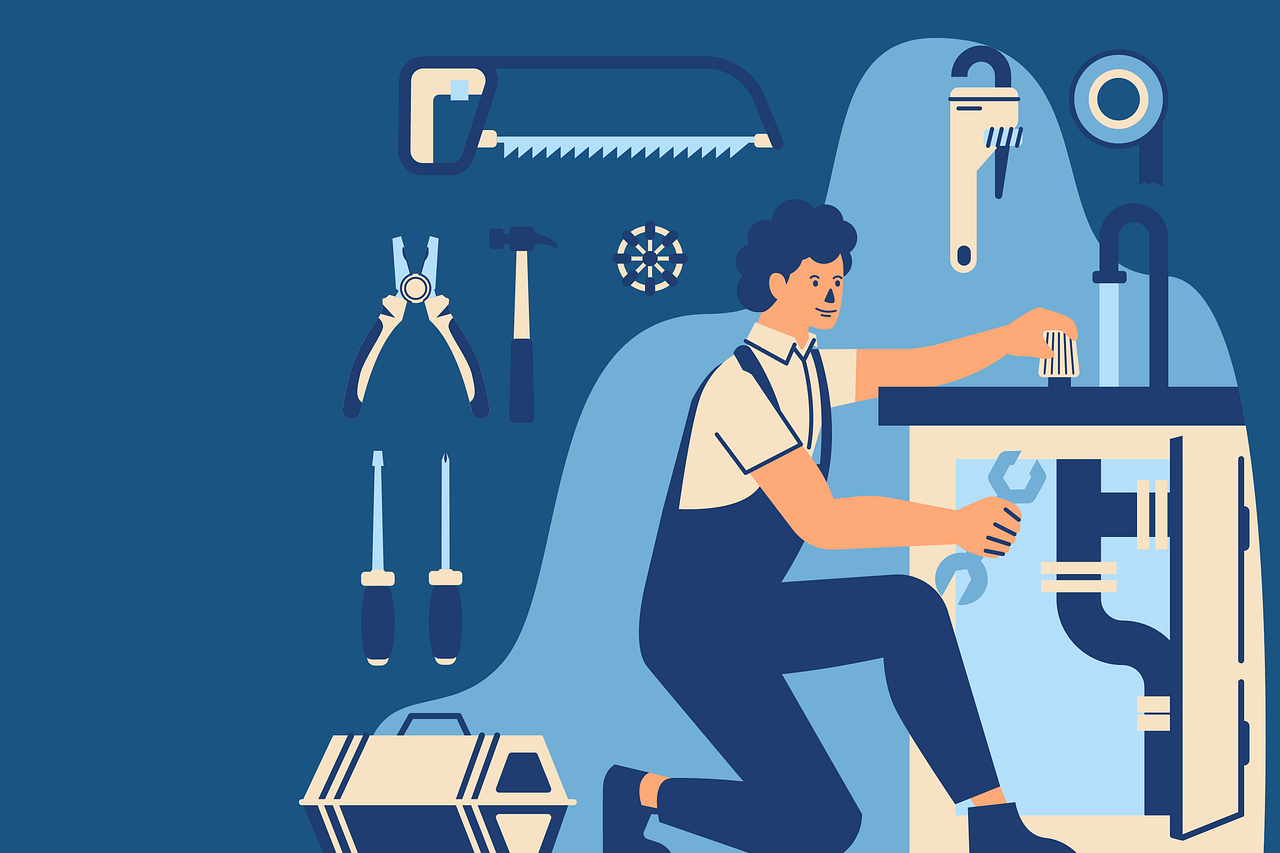Drains play a key role in preventing excess water and waste buildup. They can become clogged over time, necessitating drain clearing. Regular drain cleaning can be helpful in maintaining a well-functioning drainage system within your property.
How Often Should Drain Clearing Take Place?
The frequency at which you should clean your drains depends on various factors, including:
Drain Usage
Frequent drain cleaning may be necessary for commercial properties or households with high usage. Depending on the waste volume and flow, this can range from weekly to bi-weekly cleanings. A proactive approach towards drain cleaning can help maintain a hygienic and odor-free environment.
Type of Waste
Various types of waste materials have different impacts on the functionality and longevity of your drainage system. Disposing of grease, hair, and food particles in your drains can lead to clogs, necessitating more frequent cleaning. The need for regular drain clearing may be reduced if the waste is liquid and doesn’t contain substances that solidify as they cool, such as fat. Understand the characteristics of the waste to establish an appropriate cleaning schedule.
Drain Age
As drains age, they become more susceptible to various plumbing issues, such as clogs and leaks. This is due to the accumulation of debris over time and the deterioration of pipes. Older drains require frequent clearing to extend their lifespan and maintain efficiency. Assess your drain’s age to determine the frequency of cleaning and maintenance. This can help maintain an unobstructed and well-functioning drain that successfully supports the flow of water and waste from your space.
What Are the Signs Your Drains Need To Be Cleared?
Contact a professional plumbing company if you notice any of these signs:
Slow Drainage
Slow drainage occurs when the dirt accumulates within the drains obstructing the smooth flow of wastewater. When water cannot flow freely through the drain, it leads to the slow draining of sinks, bathtubs, and other plumbing fixtures. Ignoring this sign allows the blockage to expand and cause severe damage to your systems. Resolve slow drainage issues early to maintain the functionality and integrity of your plumbing systems.
Foul Odors
When organic materials such as food particles accumulate within your drain pipes, they cause blockages and create breeding grounds for bacteria. Over time, these blockages decompose, producing unpleasant-smelling gases like hydrogen sulfide. These foul odors can impact the overall air quality and hygiene within your property and cause potential health issues. Clean your drains thoroughly, removing any buildup to enhance the smooth flow of waste to prevent further complications.
Gurgling Sounds
These sounds result from air bubbles produced due to obstructions within the drains, such as accumulated debris, grease, or foreign objects. The clogs narrow the drains preventing the smooth flow of wastewater. If left unaddressed, they can cause more severe plumbing issues, such as slow-draining sinks, unpleasant odors, or even overflowing. Maintain the cleanliness of your drains by promptly addressing gurgling sounds as they arise.
What Are the Tips for Preventing Drain Clogs?
You can prevent future clogs once your drains are cleared by:
Using a Drain Strainer
A drain strainer helps to catch food particles, hair, and other debris before they can enter and obstruct the drain system. This helps to maintain a smooth-flowing and efficient drain minimizing potential clogs. With various sizes and designs available, drain strainers offer a versatile solution catering to various drain types.
Avoid Flushing Non-degradable Items
Flushing non-degradable materials, such as wet wipes, cotton swabs, and feminine products can cause blockages. These indissoluble items don’t break down or decompose naturally over time. They can intermingle with grease, oil, and other organic matter, further exacerbating drain clogging. Abstaining from flushing non-degradable objects can save you the costs of unclogging drains regularly.
Avoid Pouring Grease and Oil Down the Drain
Grease and oil solidify when cooling, forming blockages within the drains. The blockages impede the flow of wastewater, causing costly plumbing issues. Proper grease and oil disposal can help preserve your plumbing system’s integrity.
Hire a Professional Plumbing Service
Clogged drains can prevent waste materials and water drainage from your property and lower your hygiene levels. This can cause unpleasant smells, the proliferation of mold and pests, and impact your health. Call a professional plumber for drain clearing whenever you suspect a blockage to restore smooth waste drainage.





Be First to Comment